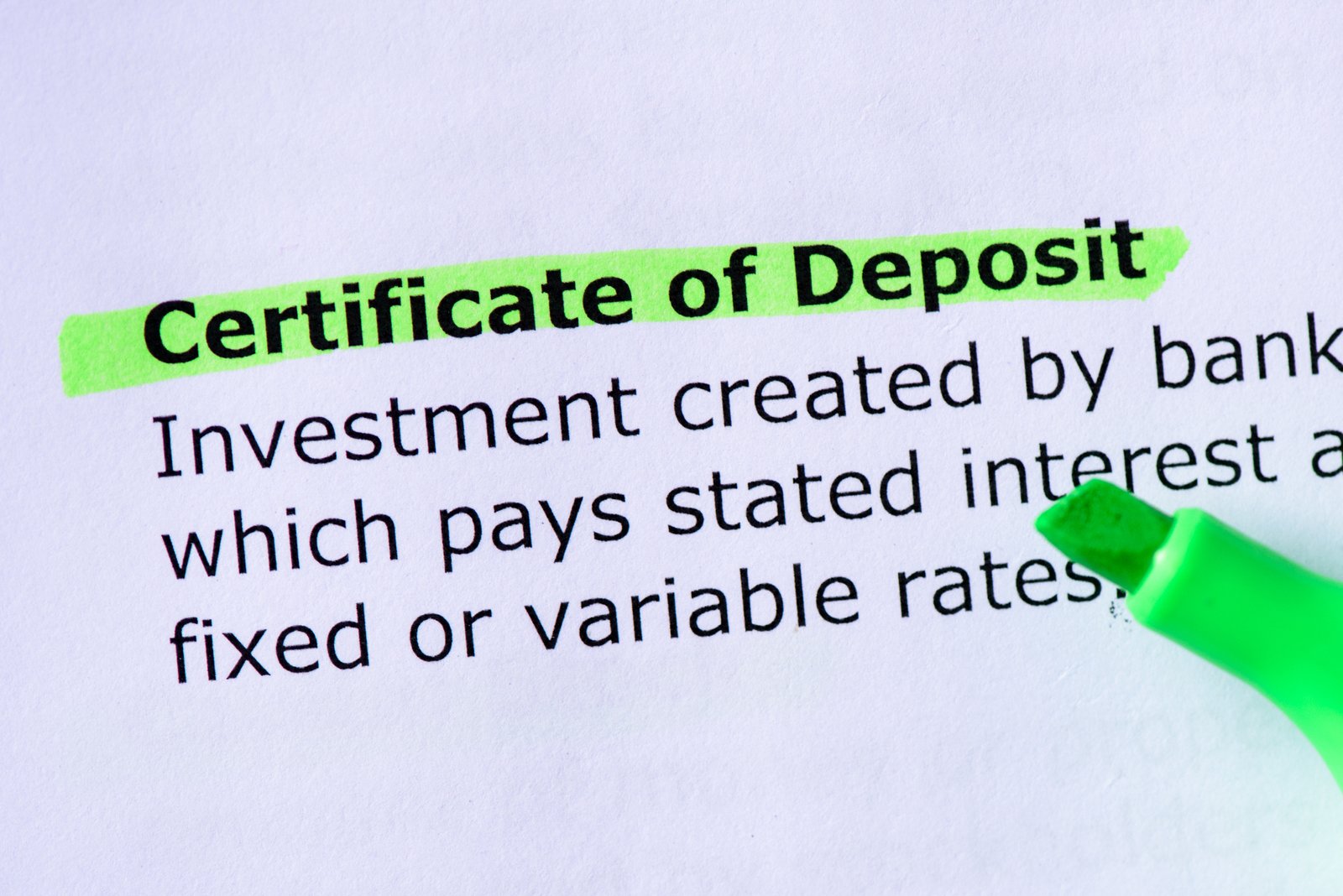Certificates of Deposit (CD)
The longer you invest your money in a CD, the higher the interest rate you’ll receive. However, when you put your money in a CD, you are committing to leaving it there for a certain period of time in order to earn the published interest rate. If you redeem your money from the account before the end of the term, you may incur a penalty charge.
The following are characteristics of a CD:
- CD terms range from 1 month to up to ten years.
- Usually the longer term you choose, the higher the interest rate offered.
- With a short-term CD, interest generally does not compound but is paid out at the end of the term, when it “matures”.
- With a long-term CD, interest generally compounds and is credited to your account on a monthly basis.
- You may withdraw the interest from your account without penalty.
- CDs require a minimum deposit–typically anywhere from $1,000 to $15,000.
- Most CDs automatically renew at the end of their term.
- CDs benefit from FDIC insurance up to $250,000 per account.
A shorter-term CD often requires a higher minimum to open the account, but you are able to access your funds sooner. A longer-term CD is a good place to park your money if you want the opportunity to earn a higher interest rate but still get the safety of FDIC insurance.

